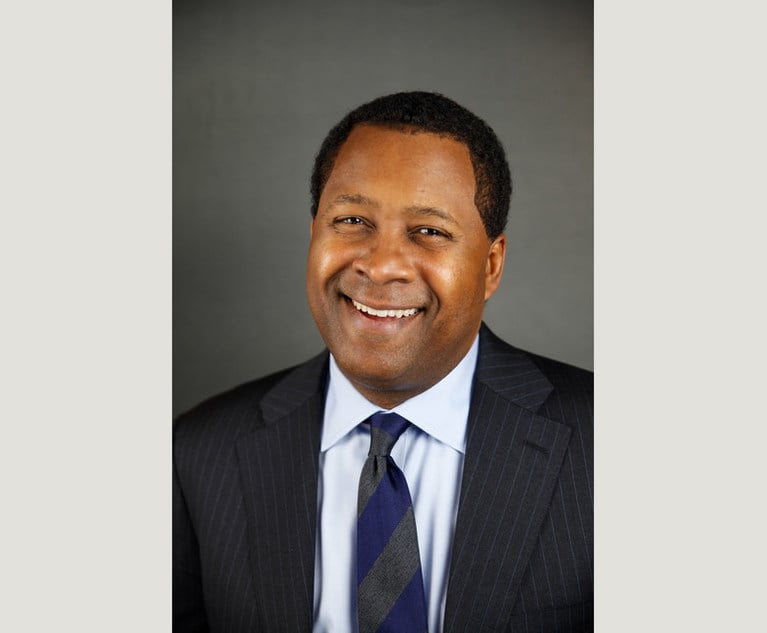Compliance Hot Spots: Why Quinn Emanuel Filed a FARA Registration | Prevention Expectations Are Growing | Meet Sidley Austin's Huawei Lobbying Team | Notable Moves & More
Thanks for dropping by Compliance Hot Spots, your weekly dive into regulatory, compliance and white-collar. Thanks for reading -- and please keep sending us your feedback and tips!
August 13, 2019 at 09:00 PM
8 minute read
Welcome to Compliance Hot Spots, and good evening from Washington. This week we’re spotlighting a new Wilmer Hale report on anti-money laundering; Sidley Austin’s signed up to lobby for Huawei; and scroll down to find out why Quinn Emanuel’s Bill Burck registered as a foreign agent for a client. Tips, feedback and general thoughts on your practices are always appreciated. I’m C. Ryan Barber—reach me at [email protected] and 202-828-0315, or follow me on Twitter @cryanbarber. Thanks for reading!
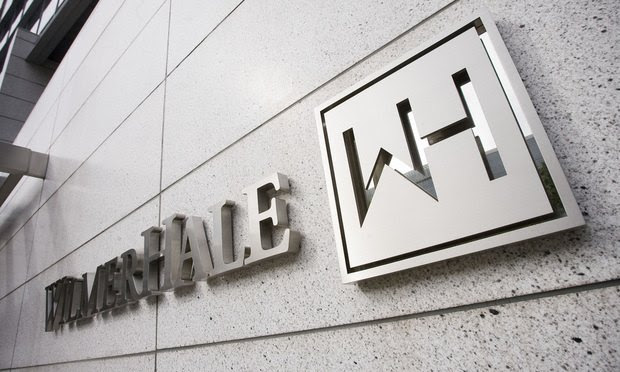
‘Expectations of Financial Institutions to Prevent Financial Crime Are Growing’
Fresh off his cameo appearance in “Game of Thrones,” David Cohen teamed up with fellow lawyers at Wilmer Cutler Pickering Hale and Dorr for an extensive summary of trends and developments in the enforcement of sanctions and anti-money laundering laws.
On the New York University School of Law’s “Compliance & Enforcement” blog, Cohen and his colleagues said enforcement of money laundering and sanctions remains a “core focus” of U.S. regulators, law enforcement agencies and Congress.
“As Congress, the executive branch and regulators all continue to focus a great deal of attention on [anti-money laundering] and sanctions issues, the expectations of financial institutions to prevent financial crime are growing,” the Wilmer Hale lawyers said.
Compliance challenges are also growing. In their report, the Wilmer Hale lawyers note that the U.S. is increasingly going it alone with sanctions, in a “sharp departure” from the multilateral sanctions strategies favored under the George W. Bush and Obama administrations.
The increasingly unilateral nature of U.S. sanctions is leading to a divergence in sanctions between the United States, on the one hand, and those of the EU, Canada, Switzerland, Japan and other countries, according to the Wilmer Hale report.
“This conflict of law presents global companies with a fast-changing and complex set of sanctions-related risks,” the report states. “We expect this trend to further accelerate throughout 2019, especially as the United States seeks to use sanctions to pressure Iran, North Korea and Venezuela in a wide range of circumstances.”
On the enforcement front, the Wilmer Hale team said it has seen a recent spike in activity from the Treasury Department’s Office of Foreign Asset Control. In the first half of this year, the office has issued about $1.3 billion in penalties and signaled that its focus on Iran has expanded to include actions involving Cuba, Ukraine and Syria.
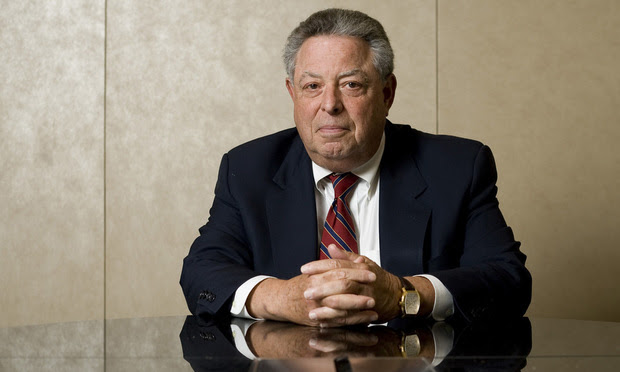
Sidley Austin Team Will Lobby for Huawei
A team of white-collar and sanctions attorneys from Sidley Austin has registeredto lobby for Chinese telecom Huawei Technologies amid mounting uncertainty over regulatory and enforcement actions from the U.S. government.
The Sidley lobbying team includes Thomas Green (above), the veteran criminal defender who formerly managed the firm’s white-collar group. Green is a senior counsel in the firm’s Washington office, and he is a lead attorney advising Rick Gates, the former Paul Manafort business associate and Trump campaign aide who became a star cooperator in the special counsel’s Russia investigation.
The new lobbying registration, first reported by Law.com, broadens the firm’s engagement with Huawei. Green, who declined to comment, is working with Sidley white-collar partner Mark Hopson and senior counsel Robert Torresen, who focuses on export control and economic sanctions.
Sidley Austin lawyers James Cole, Michael Levy and Joan Loughnane are on the Huawei defense team in Brooklyn federal court, where the Justice Department is prosecuting the company for alleged financial fraud. Prosecutors are trying to kick Cole off the team, arguing he has a conflict of interest tied to his former role as the Obama-era deputy U.S. attorney general. David Bitkower and Matthew Hellmanof Jenner & Block are also on the Huawei defense team.
Meanwhile, Sidley Austin lawyers representing Huawei sued the Commerce Department in the U.S. District Court for the District of Columbia in June over the seizure of company equipment that had been en route to China. Huawei alleged several pieces of its equipment “remain in a bureaucratic limbo in an Alaskan warehouse” after the federal government seized the property two years ago. Litigation partners Frank Volpe and Griffith Green are on the team with two associates, Matthew Letten and Ava Guo.
Huawei turned to the law firms Jones Day and Morgan, Lewis & Bockius to file a federal lawsuit in Texas against a group of federal agencies. The complaint, filed in March, confronts the constitutionality of provisions of the National Defense Authorization Act that preclude federal agencies from purchasing specified Huawei equipment and services.

Who Got the Work
>> Quinn Emanuel’s William Burck (above) has registered as a foreign agent in connection with his work for a Kuwaiti defense contractor, Agility Public Warehousing Company KSCP.
Burck told me: “Most DC lawyers would agree that FARA historically has hardly been the model of clarity. Federal judges have made the same point including in very recent cases. Our client is a privately owned company engaged in commercial activity. But we nevertheless registered under FARA out of an abundance of caution.” Burck pointed to FARA’s “commercial exemption” for companies whose activities are not directed or promoted by a foreign government or political party. He said he expects “more and more lawyers to register under FARA, even where it is not required, because of uncertainty about its scope.”
Separately, Burck last week registered to lobby for Privinvest Holding. The registration, with Stephen Hauss and Graham O’Donoghue, said the firm will “provide legal advice and services in connection with pending US court proceedings and investigations.”
>> On the same day Sidley registered to lobby for Huawei, Federal Advocacy Inc. disclosed it will be advising the Chinese company on “telecommunications issues before the administration.” Michael Esposito, a lobbyist with deep ties to the Republican National Committee, is leading the firm’s work for Huawei.
>>Covington & Burling partner David Kornblau is defending the self-described “financial guru” Reggie Middleton against fraud charges stemming from a sale of digital tokens. The SEC alleged that Middleton misled investors about a prior businesses venture and exaggerated investor demand for the so-called “VERI” tokens. On Monday, the SEC obtained an order freezing $8 million of the $14.8 million he raised in an offering those digital securities.

Compliance Reading Corner
Tech General Counsel Talk Innovation, Regulation and Diversity at ABA Panel. “We are working on cutting-edge technology. We need people from a diversity of backgrounds to be able to really do that, looking around corners, proactively identifying issues. … If the data set is all white men you’re necessarily missing part of the broader picture,” Lyft general counsel Kristin Sverchek (above) said. [Law.com]
Former Alstom Executive Asks Judge to Throw Out Foreign Bribery Charges. “The latest round of pretrial motions in the case—one of the longest-running FCPA cases currently being litigated—demonstrates the obstacles prosecutors face in bringing charges of bribery that occurred outside the U.S., as well as the obstacles faced by executives in defending themselves against those charges.” [WSJ]
Coinbase Must Face Negligence Suit Over Bitcoin Cash Listing, Judge Rules. “Coinbase must face a negligence lawsuit from customers who bought bitcoin cash (BCH) following its allegedly botched listing on the exchange during the 2017 bull market, a judge has ruled.” [CoinDesk]
2nd Circuit’s Decision Could Be ‘Tip of the Iceberg’ for FCPA Challenges. “People on the defense side of FCPA cases have long felt that the agencies have taken a tremendously extensive view of their jurisdiction to prosecute FCPA and types of conduct that are violative of the FCPA—and this does nothing to rein that in,” said Emily Westridge Black, a partner at Haynes and Boone in Austin, Texas, and Dallas, who specializes in FCPA litigation. [Law.com]
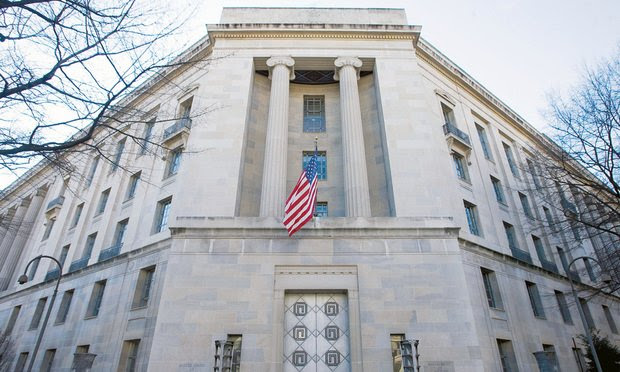
Notable Moves & More
• “Attorney General William Barr has elevated a lawyer from the Justice Department’s antitrust division to be his point person on a broad review into whether giant technology companies are using their power to thwart competition, signaling his hands-on interest in the issue. Lauren Willard has been appointed to serve as a counselor to Barr, according to a Justice Department official,” Bloomberg reports.
• Carnival Corp. on Monday named former federal prosecutor Peter Anderson as its first chief ethics and compliance officer, my colleague Sue Reisinger reports at Law.com. Most recently he spent six years in the Charlotte office of the environmental law firm Beveridge & Diamond as head of its white-collar and compliance group. For the past two years, Anderson led the environmental compliance team on the Volkswagen monitorship.
• Lyft has named David Bonelli and Lauren Smith as senior managers of federal public policy, Politico reports. Bonelli formerly was a senior attorney at the U.S. Transportation Department, and Smith served as senior privacy counsel at Future Privacy Forum.
• John Moriarty has been named the new associate chief counsel at the IRS income tax and accounting division. “Mr. Moriarty has been with the Office of Chief Counsel for over 29 years and is an outstanding choice for this important assignment,” IRS Chief Counsel Mike Desmond said in a statement.
This content has been archived. It is available through our partners, LexisNexis® and Bloomberg Law.
To view this content, please continue to their sites.
Not a Lexis Subscriber?
Subscribe Now
Not a Bloomberg Law Subscriber?
Subscribe Now
NOT FOR REPRINT
© 2025 ALM Global, LLC, All Rights Reserved. Request academic re-use from www.copyright.com. All other uses, submit a request to [email protected]. For more information visit Asset & Logo Licensing.
You Might Like
View All
Compliance Hot Spots: GOP Eyes ESG as an Antitrust Issue + Another DOJ Crypto Seizure + Sidley Partner Jumps to Main Justice
9 minute read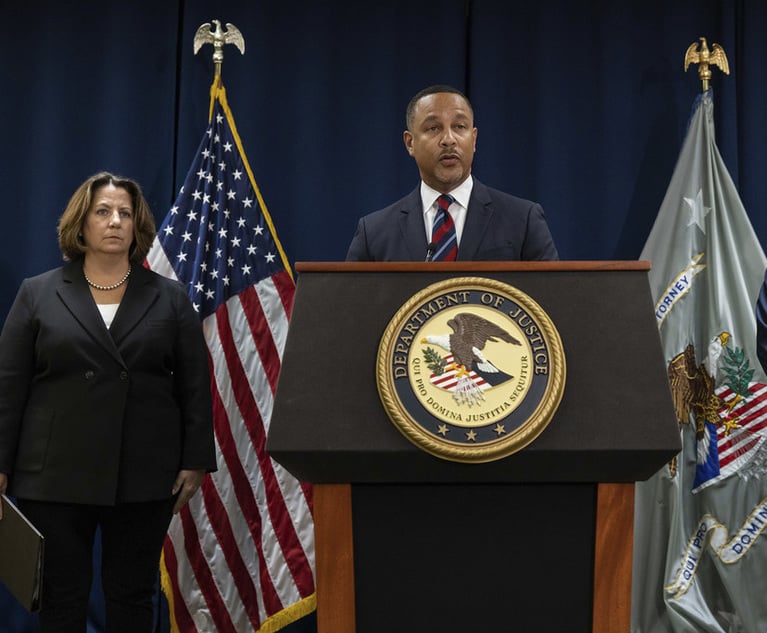
Compliance Hot Spots: Lessons from Lafarge + Fraud Section Chief Talks Compliance + Cravath Lands FTC Commissioner
11 minute readTrending Stories
- 1NY Judge Admonished Over Contributions to Progressive Political Causes
- 2Legaltech Rundown: Alexi Launches an AI Litigation Tool, Hotshot Announces Private Equity Practice Courses, and More
- 36-48. It’s Comp Time Again: How To Crush Your Comp Memo
- 4'Religious Discrimination'?: 4th Circuit Revives Challenge to Employer Vaccine Mandate
- 5Fight Over Amicus-Funding Disclosure Surfaces in Google Play Appeal
Who Got The Work
Michael G. Bongiorno, Andrew Scott Dulberg and Elizabeth E. Driscoll from Wilmer Cutler Pickering Hale and Dorr have stepped in to represent Symbotic Inc., an A.I.-enabled technology platform that focuses on increasing supply chain efficiency, and other defendants in a pending shareholder derivative lawsuit. The case, filed Oct. 2 in Massachusetts District Court by the Brown Law Firm on behalf of Stephen Austen, accuses certain officers and directors of misleading investors in regard to Symbotic's potential for margin growth by failing to disclose that the company was not equipped to timely deploy its systems or manage expenses through project delays. The case, assigned to U.S. District Judge Nathaniel M. Gorton, is 1:24-cv-12522, Austen v. Cohen et al.
Who Got The Work
Edmund Polubinski and Marie Killmond of Davis Polk & Wardwell have entered appearances for data platform software development company MongoDB and other defendants in a pending shareholder derivative lawsuit. The action, filed Oct. 7 in New York Southern District Court by the Brown Law Firm, accuses the company's directors and/or officers of falsely expressing confidence in the company’s restructuring of its sales incentive plan and downplaying the severity of decreases in its upfront commitments. The case is 1:24-cv-07594, Roy v. Ittycheria et al.
Who Got The Work
Amy O. Bruchs and Kurt F. Ellison of Michael Best & Friedrich have entered appearances for Epic Systems Corp. in a pending employment discrimination lawsuit. The suit was filed Sept. 7 in Wisconsin Western District Court by Levine Eisberner LLC and Siri & Glimstad on behalf of a project manager who claims that he was wrongfully terminated after applying for a religious exemption to the defendant's COVID-19 vaccine mandate. The case, assigned to U.S. Magistrate Judge Anita Marie Boor, is 3:24-cv-00630, Secker, Nathan v. Epic Systems Corporation.
Who Got The Work
David X. Sullivan, Thomas J. Finn and Gregory A. Hall from McCarter & English have entered appearances for Sunrun Installation Services in a pending civil rights lawsuit. The complaint was filed Sept. 4 in Connecticut District Court by attorney Robert M. Berke on behalf of former employee George Edward Steins, who was arrested and charged with employing an unregistered home improvement salesperson. The complaint alleges that had Sunrun informed the Connecticut Department of Consumer Protection that the plaintiff's employment had ended in 2017 and that he no longer held Sunrun's home improvement contractor license, he would not have been hit with charges, which were dismissed in May 2024. The case, assigned to U.S. District Judge Jeffrey A. Meyer, is 3:24-cv-01423, Steins v. Sunrun, Inc. et al.
Who Got The Work
Greenberg Traurig shareholder Joshua L. Raskin has entered an appearance for boohoo.com UK Ltd. in a pending patent infringement lawsuit. The suit, filed Sept. 3 in Texas Eastern District Court by Rozier Hardt McDonough on behalf of Alto Dynamics, asserts five patents related to an online shopping platform. The case, assigned to U.S. District Judge Rodney Gilstrap, is 2:24-cv-00719, Alto Dynamics, LLC v. boohoo.com UK Limited.
Featured Firms
Law Offices of Gary Martin Hays & Associates, P.C.
(470) 294-1674
Law Offices of Mark E. Salomone
(857) 444-6468
Smith & Hassler
(713) 739-1250




